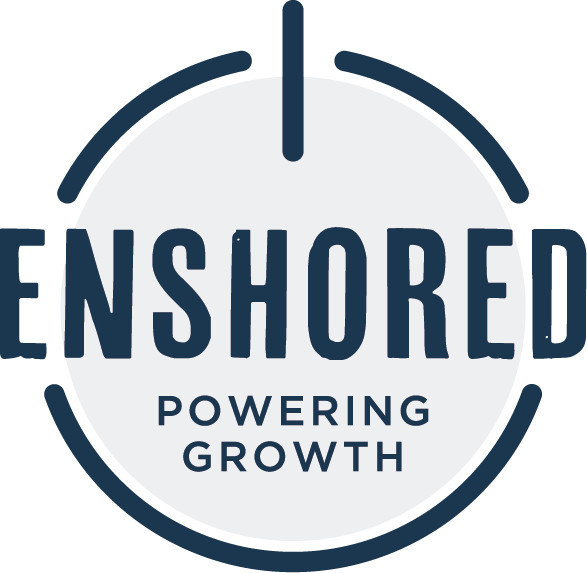Taking too long? Close loading screen.


A hurricane is barreling toward the Florida coastline. Thousands of travelers struggle with disrupted plans. Countless flights are canceled. Hotel reservations across the state are in limbo—and CSRs are swamped by urgent inquiries.
For dozens of travel agencies three years ago, this wasn’t just a hypothetical scenario. When Hurricane Ian made landfall in 2022, travel and hospitality businesses faced an operational nightmare—unless, of course, they had already embraced tourism outsourcing.
The global tourism industry, now valued at over $9.5 trillion, has rebounded strongly after the pandemic. This resurgence, however, brings stronger competition and sky-high customer expectations.
Many travel and tourism businesses are struggling to meet these demands with in-house resources. This is precisely where travel BPO (business process outsourcing) becomes invaluable—not just during a crisis but as an everyday competitive advantage.
Conversations about travel outsourcing services usually start with looking at cost savings, but smart tourism businesses quickly discover that financial benefits are just one benefit among many.
Yes, cost-wise, outsourcing delivers impressive returns. Travel agencies that implement comprehensive outsourcing services report labor savings of as much as 70% compared to maintaining equivalent in-house teams.
Even better is the financial flexibility that outsourcing provides. As our Enshored travel customers know well, the tourism industry sees dramatic seasonal fluctuations in demand.
For example, it’s no surprise that ski resorts see most of their annual bookings during the winter months—when there’s actually snow to ski on. Travel outsourcing services convert fixed costs to variable expenses that scale with business volume—helping organizations maintain leaner operations during off-peak periods while rapidly scaling during peak seasons when customer volume surges.
Gains in operational efficiency strengthen the business case for travel outsourcing. Travel BPO services typically bring streamlined processes for managing bookings, processing changes and handling customer inquiries. These hyper-efficient workflows help agents handle 20% or even 30% more interactions per hour than in-house teams.
Another key benefit? Risk management.
Unique regulatory challenges, data security requirements, and rapidly evolving compliance standards across multiple jurisdictions have made the global travel business more difficult. Navigating all these complexities takes a significant amount of time—some research suggests more than 20% of in-house legal resources at the typical travel and hospitality business.
Travel outsourcing companies specializing invest heavily in compliance expertise so they can take on much of this burden—and reduce risk for their grateful clients.
Finally, access to modern technology is another major benefit of travel outsourcing services. The digitally enabled travel industry now depends on mobile apps, centralized reservation systems, payment processing platforms, and artificial intelligence tools.
Most travel businesses don’t have the budget or expertise to develop and maintain these systems themselves, so outsourcing makes more and more sense. Businesses that outsource implement new technologies nearly three times faster than those that rely on in-house resources.
This speed creates opportunities for travel businesses to launch new services ahead of competitors—and capture the kind of early-adopter benefits that drive growth in the travel industry.
When the benefits of outsourcing tourism services become clear, travel and hospitality businesses suddenly face a critical decision—how to choose the right outsourcing partner.
This choice matters; research shows companies who choose partners based on strategic alignment see 31% better results than those who choose based on price. This is when a structured evaluation framework can help tourism businesses identify providers that can deliver immediate operational improvements and long-term advantages.
Expertise
The foundation of a successful travel outsourcing arrangement is—no surprise—industry expertise. If you’re thinking about travel outsourcing services, look for a partner who demonstrates deep knowledge of travel agency operations, hospitality services standards, and tourism sector regulations.
Generic outsourcing companies don’t often have the specialized knowledge that the complex travel services ecosystem requires. Look at each candidate’s experience with businesses like yours, their familiarity with travel-specific systems, and their understanding of customer preferences.
Case studies and client references are invaluable, as they’ll provide insight into what the provider can actually do—not simply claim. Remember, leading outsourcing companies have dedicated travel and hospitality divisions, complete with training programs that ensure their agents will understand the intricacies of how you want to serve your customers.
“Fit”
Another key area to evaluate is operational alignment. This includes everything from service hours and communication protocols to quality assurance processes and performance monitoring systems. The best travel outsourcing relationships have clear communication channels, defined escalation procedures, and regular performance reviews against established metrics.
Culture
A cultural match-up is also important when evaluating providers. Travel services frequently deal in emotion—both positive and negative—so you need agents who can adopt your brand voice and values during every interaction to provide excellent customer service. The most effective partnerships happen when outsourcing companies understand and mirror the unique culture of your business, becoming a seamless extension of your brand.
Technology
To be successful, travel and tourism businesses need outsourcing partners with advanced technical infrastructure that integrates with their existing systems—central reservation systems, customer relationship management platforms, payment processing technologies, and more.
Many benefits come with choosing the right outsourcing partner. But are you ready to pick one? Take this quick quiz to determine your readiness for travel outsourcing services.
If you answered “yes” to three or more questions, there’s a good chance your business will benefit from strategic outsourcing.
Successful travel outsourcing requires careful planning and execution. If you’re thinking about travel outsourcing services, here is a structured approach that we at Enshored propose to our customers.
Start With a Reality Check
First, take a hard look at what you’re already doing. Map out your existing processes and identify where you can outsource. Ask yourself: Where are the bottlenecks? What tasks are taking up too much time? Where might specialized expertise make the biggest difference?
The most successful companies in the travel and tourism industry approach this by walking through the customer journey step by step. This reveals where outsourcing can deliver quick wins. Remember, this process should be about improving your customer experience, not just about cutting costs.
Choose Your Partner Carefully
For tour operators and event planners, choosing the right travel and tourism outsourcing partner is a make or break. Look beyond the sales pitch and dig into the details: How will the transition work? What training will their team get about your business? How will your systems connect to theirs?
The best implementations happen when you collaborate from day one. Schedule dedicated workshops where both teams can design workflows and communication protocols together. Set clear performance metrics that reflect what matters most to your business and customers.
Begin With a Pilot
Don’t try to outsource everything at once. The smartest approach is to start with a contained pilot. This gives you room to work out any kinks before scaling up.
For example, a cruise line could start by outsourcing just their email support while keeping phone support in-house. Once processes run smoothly and relationships are established, they could expand to other channels, bringing on more customer service representatives slowly.
This kind of gradual approach reduces risk and builds confidence for both sides.
Pay Attention to Technology
Travel companies deal with complex data across multiple systems—booking engines, customer profiles, payment processors, and so on—so make sure your outsourcing implementation includes technical planning.
Even with a tech-savvy outsourcing partner, allocate your own technical resources to support the integration. Plan for thorough testing and staged data migration to ensure everything works as expected during the transition. Your customers should never feel the bumps behind the scenes.
Bring Your Team Along For The Ride
Your team will have concerns about what travel outsourcing services mean for their jobs. Address these worries head-on with transparent communication. Explain how outsourcing supports your growth strategy rather than just reducing costs.
Consider using outsourcing as an opportunity to upskill your internal team. As routine tasks shift to the outsourcing partner, it’s a good time to reposition your team to higher-value work that leverages their knowledge and creativity. This creates growth opportunities, not a fear of being replaced.
Set Up Clear Governance
Once the outsourcing project is underway, establish a structured approach to manage the long-term relationship. You might look at designating specific relationship managers, scheduling regular performance reviews, or creating clear channels for handling any issues that arise.
Build in mechanisms for continuous improvement and adaptation. Your business will evolve over time, and your outsourcing relationship should evolve with it. Strong governance means you get value as market conditions and customer expectations change.
Throughout this article, we’ve seen how tourism outsourcing has evolved beyond simple cost-cutting into a strategic decision that makes more and more sense. Today’s travel industry—with its high customer expectations, complex technology needs, and volatile demand patterns—makes outsourcing essential for sustainable growth.
The data backs this up: travel businesses with strategic outsourcing partnerships consistently outperform their competitors across all key metrics. They see better customer satisfaction scores and higher profitability.
The most successful travel businesses find the right balance—using outsourcing to enhance capabilities while staying focused on what makes them unique in the marketplace. If you’d like to count yourself among their number and explore travel outsourcing services, contact the outsourcing experts at Enshored.
Anticipating growth?
Access the tools, tech & team you need to scale globally.

Serious about scaling?
One call is all it takes to know if we’re a fit.
© 2024 Enshored · Privacy · GDPR · California · Cookies